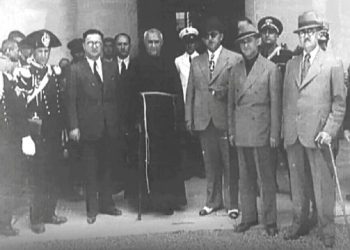By Bashkim Trenova
The third part
Memorie.al publishes the memoirs of the well-known journalist, publicist, translator, researcher, writer, playwright and diplomat, Bashkim Trenova, who after graduating from the Faculty of History and Philology of the State University of Tirana, in 1966 was appointed a journalist at Radio- Tirana in its Foreign Directorate, where he worked until 1975, when he was appointed journalist and head of the foreign editorial office of the newspaper ‘Zeri i Popullit’, a body of the Central Committee of the ALP. In the years 1984-1990, he served as chairman of the Publishing Branch in the General Directorate of State Archives and after the first free elections in Albania, in March 1991, he was appointed to the newspaper ‘Rilindja Demokratike’, initially as deputy / editor-in-chief and then its editor-in-chief, until 1994, when he was appointed to the Ministry of Foreign Affairs. with the position of Press Director and spokesperson of that ministry. In 1997, Trenova was appointed Ambassador of Albania to the Kingdom of Belgium and to the Grand Duchy of Luxembourg. Unknown memories of Mr. Trenova, starting from the war period, his childhood, college years, professional career as a journalist and researcher at Radio Tirana, the newspaper ‘Zeri i Popullit’ and the Central State Archive, where he served until the fall of the communist regime of Enver Hoxha, a period of time when he in different circumstances met some of the ‘reactionary families’ and their suckling’s, whom he described with a rare skill in a memoir book published in 2012, entitled’ Enemies of the people ‘and now brings them to the readers of Memorie.al
Continued from the previous issue
“Enemies of the people”
Hamit’s father’s release from prison and his tragedy!
One day Hamit’s father was released from prison. He was a physically strong and smiling man. It seemed as if the prison had left no trace of him, unlike Hamit who was quite temperamental, extremely sensitive and delicate as a physicist. His release from prison happened in time with the laying of the drinking water pipeline in our alley. We used to fill the streets with water in public taps, both for drinking and bathing, etc. Of course we were glad we would have water now in the backyard. I, as well as my friends, picked up the pickaxes and started to open the canals where the pipeline would be laid. Each family had to open its own canal to lay the central pipeline in front of their house. Hamit’s father did this easily not only for himself but also for other residents for a fee. He was not employed. It was not easy for a former inmate to get hired. He was free with the shackles of unemployment in his throat.
The release of the father from prison normally should have been something happy, but for Hamit it only made his life even worse. The father was told by the authorities that he could not live in the capital, so he had to choose the villages of Mat, where he was originally from, or Berat, from where the accusations were made, which ended up in prison. In Berat, a city neighborhood was for regime internees. He, of course, had to be followed by his parents, i.e., Hamit’s grandparents as well as Hamit himself.
I do not know how Hamit’s father’s life went. I know that grandpa and grandma were forced to leave their home. They went to a village somewhere near the capital, where they became shepherds of a herd of cattle, of one or several peasant families. At that time, agricultural cooperatives had not yet been set up in all the villages of Albania, the villagers still owned herds of cattle. Hamiti himself had meanwhile finished a driver course. He was called a soldier, assigned as a driver in a military ward. One day, while transporting some soldiers, his truck falls into a ditch. He was taken to hospital after receiving several blows. There were no injuries from the soldiers. This is where his tragedy ends.
Feeling like the son of the “enemy” he was afraid of being accused of deliberately knocking down the truck. To escape the charge, he began asking doctors not to care about his physical injuries, but to treat him as mentally ill. So insistent was his request, and so strong was the fear of possible passing before a military tribunal that he began to convince himself that he was mentally ill and ended up as such. He showed us how his bones were weakened or soaked where he, as he sought to persuade us, could insert or stab his finger like a knife without difficulty!
Hamiti did not enjoy a family, nor was he fortunate enough to start a family. A charming boy he fell in love with a girl while serving as a cook in the workers ‘or pioneers’ camp on Mount Dajti, which rises northeast of the capital. I knew this girl. Together we have been for several years in the artistic circles of the pioneers at the Palace of Culture “Ali Kelmendi” in Tirana. I was enrolled in the choir district while she was in the ballet district. It danced very nicely. It was simple, from a well-known Tirana family. Her father was a State Security officer, so he could never accept that the love of the two young men was crowned. Communism had created its own caps and Montagues.
I made a trip to Tirana in 2010. I asked my childhood friend Luan Pirdeni, a former neighbor of mine and Hamit, if he knew anything about Hamit. He told me that he died so forgotten and convinced of his madness, which he had seen as the only weapon of defense against the regime.
I have had the opportunity to see the girl in love with him often over the years. The road I made to work passed by her house. I do not know if she married someone else, who also suited her father, or not. However, she always seemed to convey sadness and pain, a broken youth from the first love. I always looked at her alone, unaccompanied.
The “enemies of the people” who took refuge in the house of the Kolavers
I wrote a little above that two other families and then a family of gypsies entered the house of the Kolavers as tenants. One family was that of Foto Janku, a well-known football player of Sport-Klub Tirana. With his son, Nikon, we quickly became good friends. The other family consisted of two elders, a man and a woman. The man like a ground ball with optical glasses, who could barely move, was called Stathi. The woman seems to me to be called Joana. They had no children, or rather had a son, but who had been shot.
I never learned the name of Stath and Joanna’s son. I guessed he could be called: Petro Konomi or Niko Lezho. These two names are on the list of 22 intellectuals who were shot by the regime in February 1951 without any trial, even formal, to prove their guilt. Stathi and Joana were from the south of Albania, of the Orthodox faith. In the list I mentioned only these two names are also from the south and of the Orthodox faith. The others are from the provinces that extended to the entire territory of the Albanian state, but also in the areas inhabited by Albanians such as: Kosovo, Western Macedonia or even Montenegro.
Shooting of Stath and Joana’s son for the “bomb” at the Soviet embassy
A court, which never functioned, even formally, sentenced them in February 1951 to “death by firing squad”. This decision was final and immediately enforceable. The son of two miserable old men, whom I watched in front of their gate, sometimes smiling and sometimes confused, as well as 21 others, was convicted of throwing dynamite in the yard of the Soviet embassy in Tirana. In fact, the State Security itself did not arrest or charge them. They were convicted by the Communist Party Political Bureau. This is clear from the minutes kept at the meeting of this Bureau, regarding the case I am telling about. In this record, it is proven that the former Minister of Interior at that time and a member of the Politburo, then Prime Minister, Mehmet Shehu, stated: “Since once again we shot outside the laws in force, to arrest about 100 or 150 ourselves, of whom 10 or 15 of them to shoot…! “We have prepared the arrest lists and, if you agree, we will act tonight.”
The Politburo agreed and so the decision was made. And, although all those who would be subjected to execution were arrested and convicted, as it was called at the time, for the “assassination” at the Soviet Embassy, from the minutes of the meeting of the Politburo where their sentence was decided, we see that the dictator himself, Enver Hoxha, had expressed: “The motivation not to say about the assassinations”. He also gave an answer to Beqir Balluku, a member of the Politburo, who said at this meeting: “But for the issue of those who will be shot, we must find another motivation…”. The irony is that two or three decades later, Mehmet Shehu and Beqir Balluku themselves, like almost all of the closest collaborators of dictator Enver Hoxha, will be declared by him as enemies of the Party, the people and the homeland and will be executed.
Joanna’s attempt to kill herself by jumping into the well!
The dynamite explosion at the Soviet embassy was much discussed after the fall of communism. Opinions have also been expressed that he was organized by the Security itself to justify the murders and major purges that followed. However, the fact is that from this explosion, apart from some broken windows and the damaged garage door, nothing else happened. For this, 300 people were arrested and 22 people were secretly executed at night, tied with barbed wire along the Erzen River near the capital. They were buried in a mass grave. After many years, a bulldozer digging along the river bank is horrified when he sees that his bulldozer had pulled out of the ground a buried, which as it turned out after the expertise, belonged to the female sex. It was Sabiha Kasimati, an intellectual arrested and shot along with Stath and Joana’s son and 20 other intellectuals.
Joana, dressed in black, could not bear the pain. In the yard of the Kolavers’ house, there was a large mana, which we, the children of the neighborhood, shook from the trunk or threw stones at them to get the manat. There was also water well next to it. At that time, when water had not yet entered Albanian families, each house had its own well or a well shared halfway with the neighbor. Occasionally, the well was used for drinking, bathing, and sometimes as a refrigerator for storing meat or fruits and vegetables. One day Joana approached the mouth of the well and had to jump inside, ending up in its depths. Luckily for her, good or bad, Hamit’s grandmother happened to be there. Grandmother was old, probably in her eighties, but she was a dry mountaineer, quite strong. At that age she ran quite easily behind us to catch us and punish us when we committed any of our iniquities that angered her. She grabbed Joanna and did not allow her to end her life, which she saw as her only son, no longer a gift but a curse.
Our alley with “affected families”
In our small alley where we had less than 100 inhabitants in about 12-13 private houses, there was talk of those who were called “the affected.” As a kid, I used to wonder why the “affected” were so called when I did not see them being affected by anything or anyone. In those years in Albania you were called “affected” when you were sick with tuberculosis. I knew, for example, that my aunt’s husband, Suleiman, or Sula as they called him, was affected, suffering from tuberculosis. In his house the plates, spoons and forks he used did not mix with those of the whole family. Once, when he was very heavy, I saw at my aunt’s house on a small table even a black ribbon envelope. Suleiman was expected to leave this life soon. Of the “affected” of our alley, none suffered from this deadly disease for the time being. Probably they were called such because their “lungs” were not clean, because for the regime, they were shady in the biography, so not clean, and that they were facing the same inevitable fate as those suffering from tuberculosis, suffering and blood till death.
I mentioned earlier how other families, including a gypsy family, were arbitrarily brought into the Kolavers’ house. A few meters away from the house of Kolaveri and to the right of our house, lived the Varvarica family, two charming elders, Faik and Idajeti and their two sons. Idajet was incredibly agile. As he said himself laughing, the little one had ridden the donkey back. She was more than a maniac in cleanliness; she washed with soap suds even the cobblestones of the yard, which always shone as if no ant’s foot had stepped on it. She did not bother to pick up the brush and paint the exterior walls of the house with lime when the rains, which are frequent and torrential in Tirana, left some roughness or stain somewhere. The surrounding walls of her house should always be white and down with a strip of dark paint, she liked brown or dark blue. Faik was a thin and dry man. He paid close attention to his appearance, always clean and tidy. On his head he wore a black feast. There were not many words. He greeted us alley children with a frugal smile. He liked that we addressed him by calling him “mixha”. In short, both of them, Idajet and Faik, were as if they had come out of a test tube and as if they were living in a test tube. Their misfortune was that both boys had no children, they were sterile. The eldest son, even, in search of chances to have a child, died in the spas of Peshkopi, a city with thermal waters in northern Albania.
Haxhi Lleshi visits the “affected family” Varvarica
As if their misfortunes were not enough, the state “took care” of Varvarica. One fine day a gypsy, working as a coal transporter for the capital’s families, was introduced to them as a tenant. He did this by loading two or three sacks of coal into his metal hand cart, the same cart that has long been used in construction and continues to be used in gardening. He then unloaded these bags at the address of the coal buyer, paying for the service. That was his job. Every day he had to shovel dozens of sacks of coal and transport them by wheelbarrow to every corner of the city. Coal was used for cooking and heating. At the end of the day, he was even blacker than he really was, covered in coal dust, which would shake him at the Varvarica house every evening. It seemed as if he was performing a commanded ritual, accompanied even by songs. The gypsy liked the song, and even demonstrated physical exercises in his room, which rose directly above the kitchen of Varvarica. The window of this room overlooked the street and was often open. I climbed to the top of a tall pine tree growing in our backyard and “controlled” the gypsy’s movements, which seemed to me somewhat special, fun, though not a bit theatrical. It did not seem to me that I was doing something impermissible. Ultimately the curtain (window) was open.
Later I would learn that the arrival of the gypsy in the house of Varvarica, was related to their being “affected”, that is, even those like Kolaveri or Joana and Stathi, were “shady”, were not pure in biography. They “deserved” coal dust or soot. Why?
During the years of World War II, suddenly, one day the news spread that Mehmet Shehu, then commander of the First Assault Brigade, an anti-fascist armed formation, had been killed in fighting with the Germans or the nationalists. Faik, who was apparently not pro-communist, happily handed out candy to celebrate the event. This was not forgiven him as nothing else was forgiven. It is about a distant nephew of his, Ramiz Varvarica. This young man full of dreams for a new world without tyranny, volunteered in the ranks of the International Brigades in the Spanish War. Faik had not approved of this step of Ramiz, and even, as it was said then, had denied him as a grandson. This went on for several years, and then surprisingly all was erased from memory. Another attitude started towards the Varvarica family. What happened? Nothing. The dictatorship once again played with the fate and lives of the people as it wished.
Ramiz Varvarica is known in the history of Albania’s anti-fascist resistance as one of its first heroes. He was killed in battles against Francoism while defending the Spanish Republic. He was honored with the high title of “People’s Hero” and the communist regime boasted of his act. Ramiz was originally from Dibra, an Albanian-majority town located on the Albanian-Macedonian border in the Republic of Macedonia. He apparently had no family in Albania, or had other relatives in Albania other than Faik Varvarica’s family. Unwillingly and unwillingly, this helped Faik.
The communist regime to honor the fallen in the fight against Nazi-Fascism had declared May 5 as a national holiday. Every year on this date high-ranking officials of the dictatorship went to visit the homes of the families of the martyrs to show that their sacrifice would never be forgotten, that they were the ones who with their blood had laid the foundations of the existing political system. It was equally a lucrative political spectacle for its organizers. The families of the martyrs were to serve as the decor of this spectacle. In this annual ceremony, someone in the communist leadership remembered a beautiful day that no one had ever gone to Ramiz Varvarica’s family on May 5. His family must have been searched and, since no trace of her was found, he was further searched in Varvarica. This is how it reached the family of Faik Varvarica, where on May 5, I do not remember the year, the Speaker of the People’s Assembly (parliament of the time), Haxhi Lleshi, goes to visit the house of Varvarica, our neighbors. Haxhi Lleshi knew Faik Varvarica well, because they were almost the same age and came as refugees to Albania from the same city, that of Dibra. The communist protocol has been strictly controlled and one cannot guess for a mistake in the protocol, or for a mistake of Haxhi Lleshi. Had someone else made this visit, outside of this protocol, she would have paid her heavy “price” for a lifetime.
After this visit, which can be seen as a very late rehabilitation of the Varvarica family, ie a deletion from the list of “affected”, I met Behxhet Agolli in the alley of childhood. He continued to live there, without changing his address, so he was always next door to Faik Varvarica. Behxhet stopped me and started talking in revolt towards Haxhi Lleshi. He was disapproving of his visit to the Varvarica family, mentioning to me who the Varvarica were, so Haxhi Lleshi had honored those who had been on the other side during the war! In fact, from Behxhet’s family, everyone was engaged in the ranks of the anti-fascist armed resistance.
His three brothers and Sadoshi, the wife of the elder brother, Nabiu, had been in partisan units. The mother, Fahria, had actively aided the anti-fascist resistance. All during their lifetime they never boasted of the bravery they had shown, nor did we ever hear them speak with fire and fanaticism. This was done, in a way, by Behxhet, the only member of the family who (arguably due to his age) had not taken part in the war. That did not stop him. He asked me to write a letter to the Central Committee of the Party, or to the General Secretary of the Party, Comrade Enver Hoxha, where we would denounce this visit and express our disagreement. Behxhet continued with the same rhetoric, as in the years of our childhood at Isuf Larushku’s oven. Memorie.al
The next issue follows




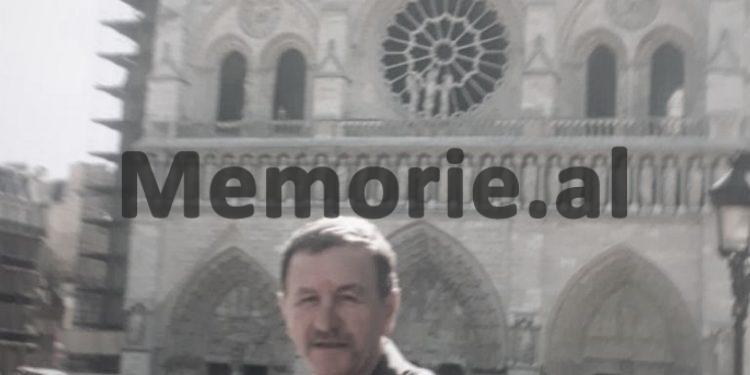
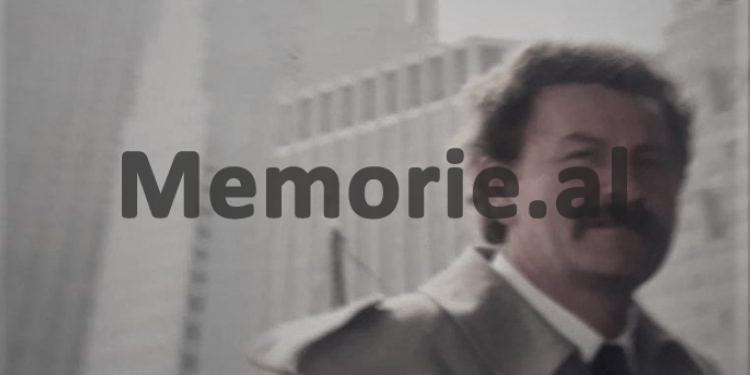
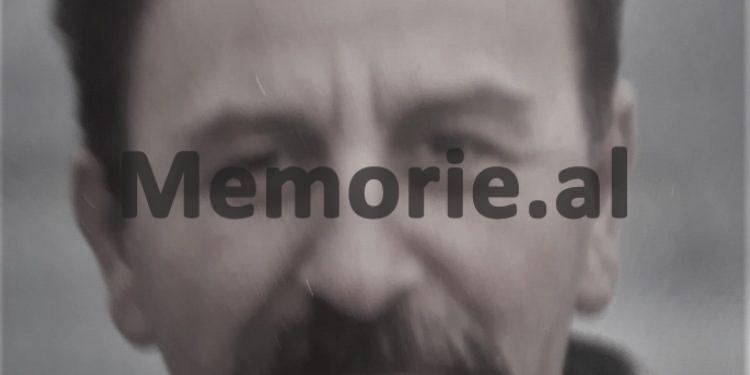
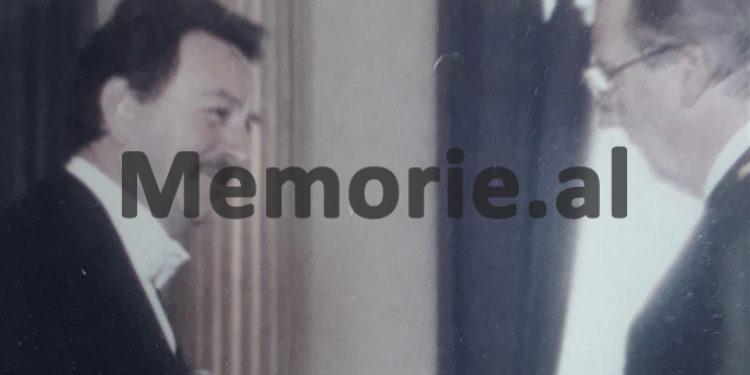

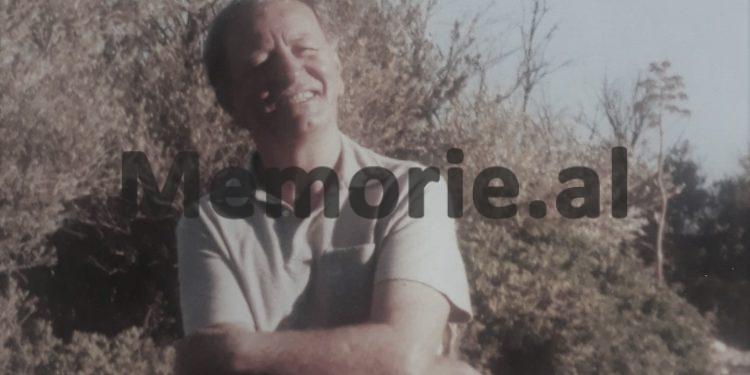
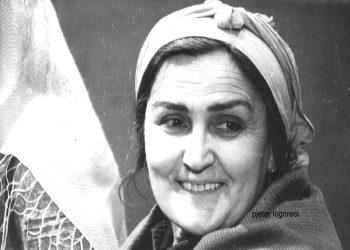
![“When the party secretary told me: ‘Why are you going to the city? Your comrades are harvesting wheat in the [voluntary] action, where the Party and Comrade Enver call them, while you wander about; they are fighting in Vietnam,’ I…”/ Reflections of the writer from Vlora.](https://memorie.al/wp-content/uploads/2025/06/admin-ajax-4-350x250.jpg)


